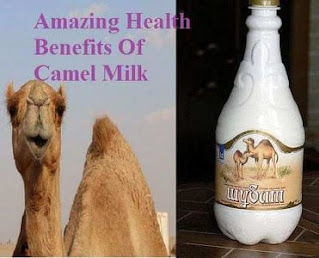Vitamin E is an important fat-soluble antioxidant compound that aids the body in neutralizing the harmful after-effects of oxidation of fats. Current research is even looking into the important role that this vitamin plays in stopping free-radical production, a key method of preventing the development of chronic diseases and ageing. It is also a vital element in the overall maintenance of a healthy immune system. Some studies are even looking into its role in preventing degenerative mental imbalances such as dementia and Alzheimer’s disease. And while many of us may do well in taking extra vitamin E supplements, we can use an organic diet to get a lot of the daily requirements for this powerful antioxidant lipid.
Foods With Vitamin E
Here are top foods with vitamin E that you should strongly consider adding to your diet.
Plant oils ( Wheatgerm )
Most plant seed oils are very good sources of Vitamin E as well. The best oil with vitamin E is Wheat germ oil. In fact, one tablespoon of this oil holds 100% of your daily Vitamin E requirements. Sunflower oil is another excellent option, as it provides over 5 mg of the vitamin, and can easily be used for cooking. Other great Vitamin-E-rich oils include hempseed oil, coconut oil, cottonseed oil (with almost 5 mg of vitamin E).
Almonds
Almonds are one the best vitamin E foods. Just an ounce of almonds offers a whopping 7.4 milligrams of vitamin E. You can also get your vitamin E needs in the form of almond milk and almond oils. We would recommend eating raw almonds, if possible.
Spinach
Spinach may not be your favourite veggie, but it is one of the best leafy greens you can add to your diet. Not only is it one of the best calcium food and naturally high in folate, it’s also one of the best vitamin E foods as well. Just one cup of boiled spinach will provide you with approximately 20% of your daily needs. Try adding fresh spinach to your sandwiches to make them extra healthy.
Olives
From the oil to the fruit, eating olives is an excellent way of getting your daily needs for vitamin E. Just one cup of olives can give you approximately 20% of your daily recommended amount.
Raw Seeds
Select raw seeds, such as sunflower, pumpkin and sesame, are another common food with vitamin E. In fact, eating just ¼ of a cup of sunflower seeds gives you 90.5% of your recommended daily value, making them one of the best vitamin E foods you can eat daily.
Pine Nuts
Add an ounce of these nuts to anything you please! One serving contains 2.6 mg of vitamin E. You can also use pine nut oil for added health benefits.
Papaya
This popular fruit is most commonly known as one of the best vitamin C food, but it’s also high in Vitamin E. Just one papaya will give you approximately 17% of your daily needs. Try adding fresh or frozen papaya to fruit smoothies, along with other fruity vitamin E foods on this list for an extra healthy snack!
Avocado
Perhaps one of the tastiest foods with vitamin E, avocados represent natures creamiest, oil-rich food. Just half of an avocado holds more than 2 mg of vitamin E. Avocados are very easy to incorporate into your diet. We would recommend adding sliced avocados to your salad, a sandwich, or mashed up as guacamole!
Top 10 High Vitamin E Foods by Nutrient Density (Vitamin E per Gram)
| #1: Plant Oils (Wheat Germ) | 149.4mg (722% DV) per 100 grams | 20.9mg (101% DV) per tablespoon (14 grams) | Click to see complete nutrition facts for Plant Oils |
| #2: Spices (Chili Powder or Paprika) | 38.1mg (184% DV) per 100 grams | 3.1mg (15% DV) per tablespoon (8 grams) | Click to see complete nutrition facts for Spices |
| #3: Sunflower Seeds | 36.3mg (176% DV) per 100 grams | 10.2mg (49% DV) per ounce (28 grams) | Click to see complete nutrition facts for Sunflower Seeds |
| #4: Almonds | 26.2mg (127% DV) per 100 grams | 7.3mg (35% DV) per ounce (28 grams) | Click to see complete nutrition facts for Almonds |
| #5: Hazelnuts | 15.3mg (75% DV) per 100 grams | 4.3mg (21% DV) per ounce (28 grams) | Click to see complete nutrition facts for Hazelnuts |
| #6: Dried Herbs (Oregano) | 18.3mg (88% DV) per 100 grams | 0.4mg (2% DV) per teaspoon, ground (2 grams) | Click to see complete nutrition facts for Dried Herbs |
| #7: Pine Nuts | 9.3mg (45% DV) per 100 grams | 2.6mg (13% DV) per ounce (28 grams) | Click to see complete nutrition facts for Pine Nuts |
| #8: Peanuts | 6.9mg (33% DV) per 100 grams | 1.9mg (9% DV) per ounce (28 grams) | Click to see complete nutrition facts for Peanuts |
| #9: Dried Apricots | 4.3mg (21% DV) per 100 grams | 5.6mg (27% DV) per cup (130 grams) | Click to see complete nutrition facts for Dried Apricots |
| #10: Olives | 3.8mg (18% DV) per 100 grams | 1.1mg (5% DV) per ounce (28 grams) | Click to see complete nutrition facts for Olives |








No comments:
Post a Comment